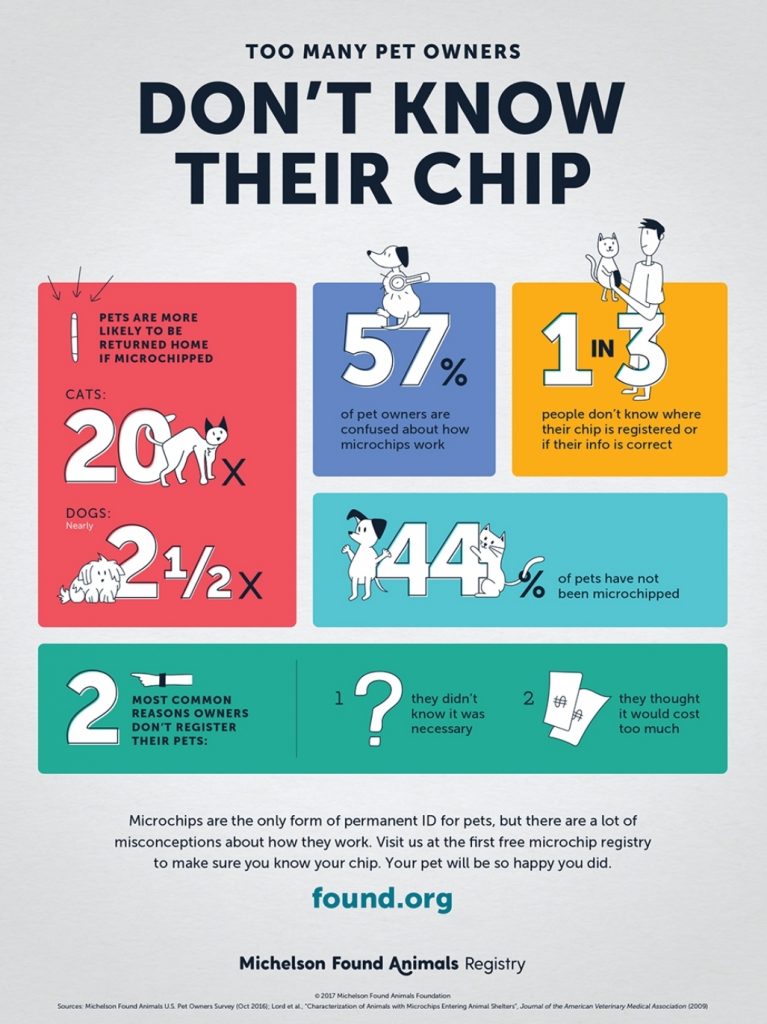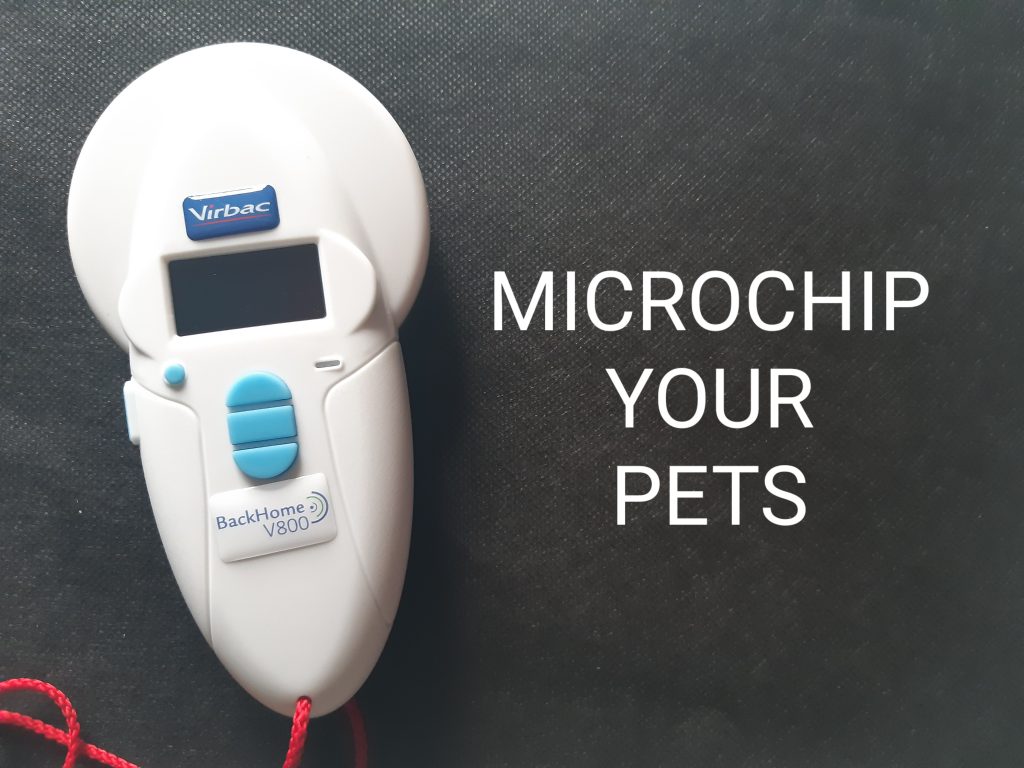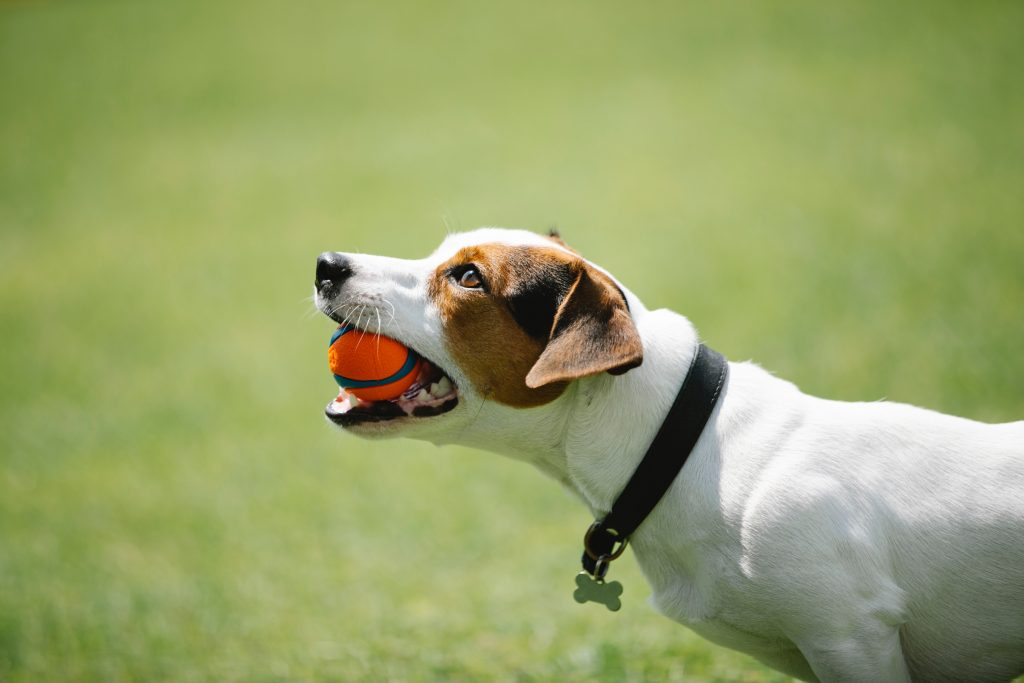
ANIMALS 101 – HOW MUCH DO YOU KNOW ABOUT YOUR PET’S MICROCHIP?
When your pet goes missing, you can drastically improve the chances of being reunited with them, by having them microchipped!
Some sources suggest that 1 in 3 pets will go missing at some point during their life. Studies suggest that dogs with microchips were twice as likely to be reunited with their owners as those without and cats a whopping 21 times more likely.
Shockingly more than 50% of owners do not know much about their pet’s microchip and how it works. Many do not even know whether and where it is registered.

Microchips are rice grain-sized, safe and hurts no more than any inoculation. The procedure can be done by a Veterinarian, a qualified animal welfare worker or a registered microchip service provider representative.
A responsible Veterinarian will scan for the microchip before any other procedure is done. They should scan the whole body if the chip is not found immediately. Just in case it migrated. It is important that animals be scanned at their yearly check-ups as well as, before moving or possible traumatic events (thunderstorms or festive times when fireworks can be expected) to ensure that their chips still work.
Also read: ANIMALS 101 – PET THEFT
When choosing a provider, apart from research on the microchip, providers and their platforms, you can also ask your Vet and local shelters which one is commonly used in your area or can easily be scanned by local shelters or Vet’s scanners. Always choose an anti-migrating microchip.
Microchips are not as expensive as people think. Prices can vary from R180 at some SPCA’s to R450 at a Veterinarian. Divide even the most expensive ones by 10 years, it is only R45 a year for peace of mind and double the chance of your pet being reunited with you after being lost. That is money well spent!
Some countries use different frequency microchips. So, if you are travelling abroad or emigrating with your pet, make sure you check this!

THE IMPORTANT PART AFTER MICROCHIPPING – REGISTRATION!
No one else, but you are responsible to make sure the microchip is registered after the procedure. A microchip is not a GPS and only stores an identification number. If this is not linked to your information on a database, it is useless! The Vet or service providers do not do this automatically.
You should be able to register any brand of microchip across multiple registries/databases/platforms and in most cases it is free. Registries are however not required to share owner information, so if a Vet or shelter does not search on all databases, they might not find the owner. Owners must ensure their pets are registered across all platforms.
Details required by platforms can include Pet details, medical information, owner details, medical insurance details, breeder details, photo, second/third contact person, your Veterinarian’s contact details, injector’s ID number or practice number. Make sure you have these details prior to avoid frustration or delay or incomplete info when registering. Add a photo on all databases which has this feature and make sure it appears in the search.
Some of the popular databases in SA include:
Virbac (backhome), Identipet, GetMeKnown, FivestarID, Petlookup, KUSA and others. The two main search platforms we use are Chip-n-Doodle and Animal Microchip Lookup Africa (AMLA).
EXAMPLE: We have 3 pets. 2 with Identipet and 1 with Fivestar chips. They are registered on GetMeKnown, Virbac – BackHome, FivestarID and Identipet platforms. If we search for them on Chip-n-Doodle then it shows “found” under FivestarID and GetMeKnown only. If we search for them on Animal Microchip Lookup Africa they are “found” under Idetipet and Vibrac. Make sure you are registered on at least one of each of these search facilities.
You can download a certificate op registration from all sites to keep it safe.

WHAT ABOUT A COLLAR ID?
A collar with a tag, in addition to the microchip, is advisable. An ID collar might get your pet home faster, so never underestimate its value, however, a collar ID can fall off or be removed by animal thieves. We only prefer an updated contact number without the pets’ names on the tag, for safety reasons. Cats should have break-away collars to prevent them from getting stuck or injured.
IMPORTANT! Microchip your pets, register their chips on a few databases and keep the information up-to-date! READ MORE ON MICROCHIPPING HERE
Next week we will look at why adopting a pet is a great idea!
WHEN YOU KNOW BETTER, DO BETTER!